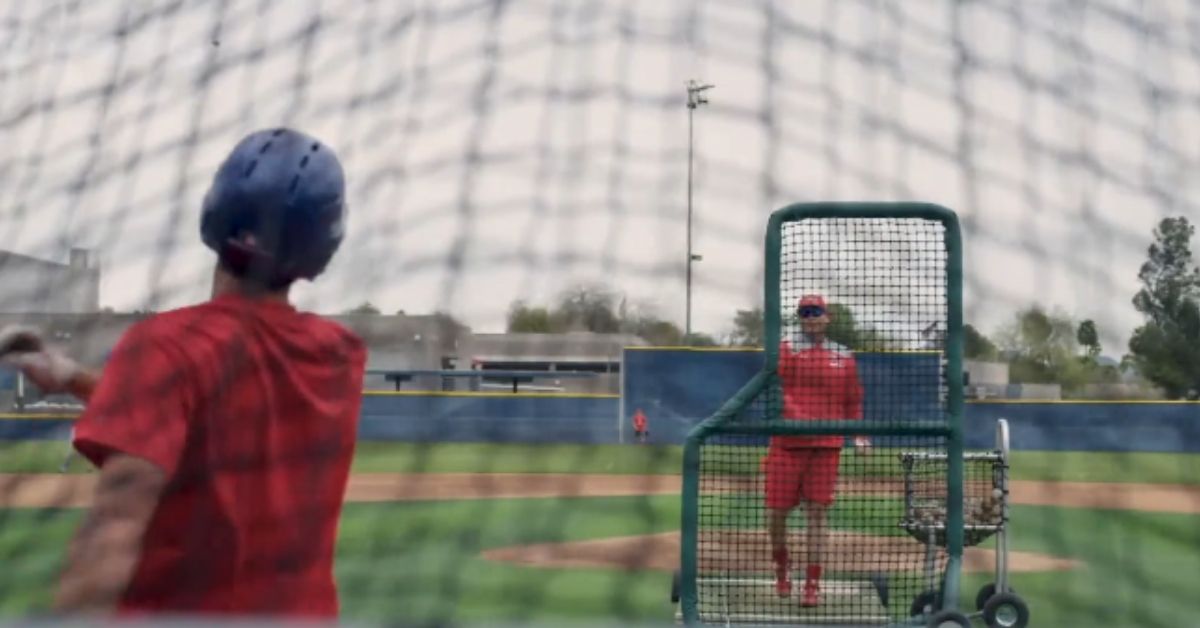Imagine stepping onto the freshly cut grass of a high school baseball field, where the role of a coach extends far beyond teaching the rules of the game. A high school baseball coach is a pivotal figure, shaping young athletes not only in their sportsmanship but also in their life skills. They juggle multiple hats—mentor, strategist, and sometimes even a surrogate parent.
As you explore the multifaceted responsibilities of these dedicated coaches, you’ll discover how they influence the game and the lives of their players. From early morning practices to intense game-day decisions, their impact is profound. Join us as we delve into what makes a high school baseball coach a cornerstone of both athletic and personal development.
Role of a High School Baseball Coach
A high school baseball coach plays a crucial role in developing both the skills and character of their players. They offer more than just tactical advice; they foster a sense of responsibility and teamwork crucial for personal growth.
Developing Player Skills
The primary responsibility of a high school baseball coach involves enhancing each player’s athletic abilities. Coaches assess players’ strengths and weaknesses, tailoring individual training regimens to improve specific skills. For instance, pitchers and batters receive targeted practice sessions to hone their techniques, such as pitching accuracy and batting strength. Moreover, coaches introduce advanced strategies and gameplay tactics that players must assimilate to excel in competitive scenarios. These training sessions ensure that players not only master the fundamentals but also develop the advanced skills necessary for higher-level competition.
Fostering Teamwork and Sportsmanship
Beyond physical training, a high school baseball coach cultivates an environment where teamwork and sportsmanship thrive. They emphasize the importance of cooperation, encouraging players to support one another both on and off the field. Regular team-building activities, like group drills and collaborative strategy meetings, enhance interpersonal relationships among players. Coaches also instill a strong ethical foundation by upholding fair play and respect for both teammates and opponents. This dual focus on teamwork and ethical behavior prepares students for collaborative endeavors beyond sports, reinforcing lessons in leadership and mutual respect.
Challenges Faced by High School Baseball Coaches
High school baseball coaches manage a variety of hurdles, ensuring that their teams excel despite these challenges. This discussion explores two critical aspects of their roles: managing budget constraints and addressing parental expectations.
Balucing Budget Constraints
Operating within financial limitations often proves challenging for high school baseball coaches. Funds budgeted for team activities can be limited, impacting everything from equipment purchases to travel arrangements. For instance, coaches might need to make hard choices about which gear can be updated annually or find creative solutions like organizing fundraizers to boost their budgets. This requirement tests their ability to maintain a high-quality program while managing finite resources efficiently.
Dealing with Parental Expectations
Coaches frequently face the task of meeting or managing parental expectations. These expectations can range from playtime for their child, to the strategies employed during games. Coaches must communicate effectively, ensuring parents understand team decisions and the reasoning behind them. Regular meetings and transparent communication practices help mitigate misunderstands and establish a cooperative relationship between coaches and the athlete’s families, allowing them to unite in fostering the athletes’ development.
Impact of a Coach on Players’ Future
A high school baseball coach greatly influences players’ prospects, often extending beyond mere sports performance. Coaches mold athletes not only in terms of physical skills but also in preparing them for future challenges.
Scholarship Opportunities
High school baseball coaches play a crucial role in unlocking scholarship opportunities for you. They guide athletes through the complex recruitment process, making connections with college scouts and advocating on your behalf. Coaches develop players’ athletic profiles, highlight their strengths in strategic gameplays, and compile stats that attract scholarships. Further, their recommendations carry significant weight in college admissions, where talent and character are both prized qualities. Players with adept coaching benefit from enhanced exposure to college networks, improving their chances of securing athletic scholarships.
Leadership and Life Skills
The impact of a coach extends into the development of leadership skills and life lessons that are vital off the field. Coaches impart values such as discipline, perseverance, and teamwork, transforming you into a leader both in and out of sports. They provide critical feedback that teaches you to handle success and failure constructively, crafting a resilient mindset. Additionally, the strategic decision-making required in baseball mirrors many real-world challenges, offering you a practical framework for problem-solving in various life situations. Through this holistic coaching approach, players develop a strong work ethic and communication skills that are essential for future career success.
Strategies for Success in High School Baseball Coaching
High school baseball coaching goes beyond teaching sports; it involves shaping the future of young athletes. Here, you’ll learn effective strategies for recruitment, training, and game implementation that can elevate your coaching game.
Recruitment and Training Methods
Recruiting talented players is pivotal for a successful high school baseball program. First, you’ll want to establish a strong network with local youth baseball leagues, as these are your primary sources for upcoming talent. Engaging with players and their families early fosters a relationship that can encourage talented individuals to join your team.
After assembling your team, the focus shifts to training. This involves a tailored approach that develops both individual player skills and team cohesion. Implement drills that enhance players’ fundamental abilities—hitting, running, fielding, and pitching. Additionally, incorporate conditioning sessions to improve their overall fitness and endurance. Regular video analysis sessions can also be beneficial, providing players with insights into their mechanics and offering corrective guidance.
Implementing Effective Game Strategies
Once recruitment and training are in place, crafting effective game strategies becomes crucial. As a coach, you’ll analyze the opposition’s strengths and weaknesses, adapting your tactics to each game. This includes deciding which players fit best into starting positions and determining batting order based on performance and matchups.
Effective communication during games ensures that players remain informed about tactical changes and expectations. It’s important to maintain a balance between sticking to a predefined strategy and being flexible enough to adapt during the game based on unforeseen circumstances. This dynamic approach helps players stay engaged and responsive to real-time shifts in play, which is crucial for maintaining competitiveness and securing wins.
Integrating these strategies into your coaching, you create an environment that not only pursues victory but also prioritizes player development and team spirit.
Conclusion
As you reflect on the critical role of high school baseball coaches, it’s evident that their impact extends beyond the diamond. They’re not just coaching a team; they’re shaping future leaders, instilling values, and preparing young athletes for life’s challenges. Your understanding of the multifaceted responsibilities of these coaches ensures you appreciate their dedication to both the sport and their players’ holistic development. Embrace these insights to support or engage with the coaching community, fostering an environment where young athletes can thrive both on and off the field.


